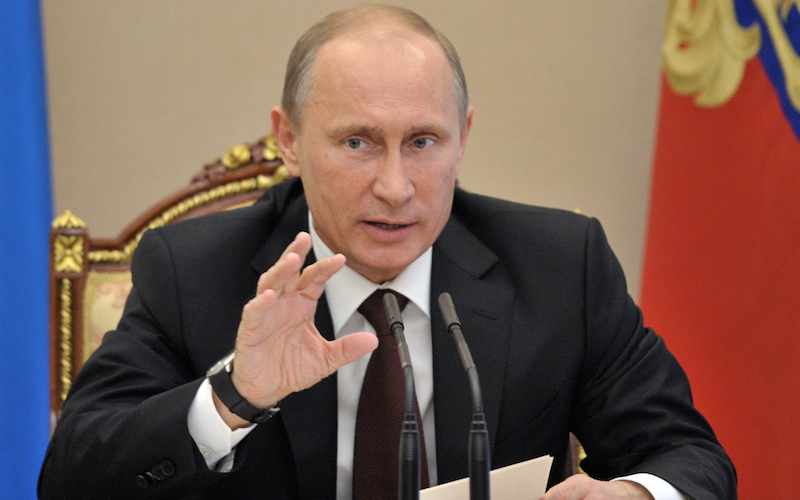
Is Putin Dividing Europe with Ban on European Goods?
Russia recently imposed a ban on EU food products in retaliation for economic sanctions that were imposed on Russia in response to the Ukraine crisis. The year long ban, which includes meat, fish, fruit, vegetables and dairy products, is forecast to cost the EU a potential €12 billion loss. Effective immediately, the ban applies to all EU countries, and will also affect products from the US, Canada, Norway and Australia. The volume of trade of food products between Russia and EU countries is vast. According to the Institute for Complex Strategic Studies (ICSS), Russia buys 31.5 percent of its meat, 42.6 percent of its dairy, and 32 percent of its vegetables from Europe.
The ban will lead to economic losses and political division. Russian actions in Ukraine have presented Europe with a set of challenges for which it was not prepared. While NATO stood on the sidelines and watched as Russia annexed Crimea, European leaders recently tried to show a more unified front by applying common economic sanctions on Moscow in the wake of the crashed Malaysian airliner. Now, Russia has decided to apply its own sanctions. The result is 100,000 tons of rotting French fruits and vegetables and over €1bn of unsold German pork and there are unsold stocks of Scotland’s most valuable export, mackerel.
Last year, Russia bought $16 billion worth of food from the bloc, or about 10 percent of total exports, according to Eurostat. In sum, the move will decidedly hurt the European Union, and has already created a rift among the member states.
So, even if Russian store shelves will be a bit empty for a while, Putin played his cards right. He managed to split EU opinion about these sanctions, especially among Eastern European countries who are the most affected by the ban.
Attesting to this trend, and defying the purported image of European unity, Finnish President Sauli Niinisto became the first EU leader to meet President Vladimir Putin on Russian soil. Niinisto met the Russian leader last week to address the trade turnover between Russia and Finland, which has already fallen by 8% in the first half of this year and promises to keep plunging to an even greater extent following the food ban. Additionally, the largest opposition party in Greece has already urged its government to drop the Russian sanctions.
(Prepared by Ethnographic Edge using Web Intelligence provided by Recorded Future)
Furthermore, as farmers struggle and Europe tries to figure out how to help, black markets have emerged across Europe. Farmers across Europe have to get ready to face big losses. If they aren’t able to find alternative markets for their goods – especially when it comes to fruit and vegetables – the ban could turn into a disaster. Talking to The Guardian, Eric Guasch, an apple producer from the Avignon region, explained that he sells 80% of his fruit to the Russians, and that following the ban he has already had to lay off the nine seasonal workers he had taken on. He told a British newspaper, “We are still in a state of shock over the embargo, which fell just like that. It wasn’t just that all the orders we had were cancelled, but that our lorries already on the road were stopped at the Russian border and turned back. So we have a problem of dealing not just with unsold stock, but produce in transit.”
Farmers across the EU are feeling the weight of the ban and are reacting in different ways; Polish farmers started an online protest against Russia, posting pictures posing with apples. The EU announced last week it will start a program to compensate the most affected farmers, which will only add more weight to European nation’s struggling finances. The ban has driven food traders to find alternate ways for their products to reach Russia. Countries not affected by the ban, such as Turkey, are now used as a gateway. The ban is also expected to create a black market for EU products that are still in high demand by the more prodigal Russians, such as French cheese, Norwegian salmon, and many other products.
The ban has already caused the price of many agricultural products to drop. But we can expect Europe to seek new markets for its products, such as meat, in order to balance out the loss felt in Russia. As such, we will see trade between the EU and countries who have recently been increasing their imports, like the Philippines, Japan and South Korea, continue to grow. Europe might also try to increase its trade with Latin America.


